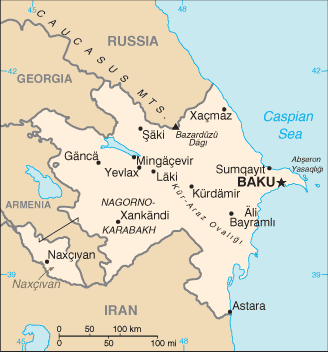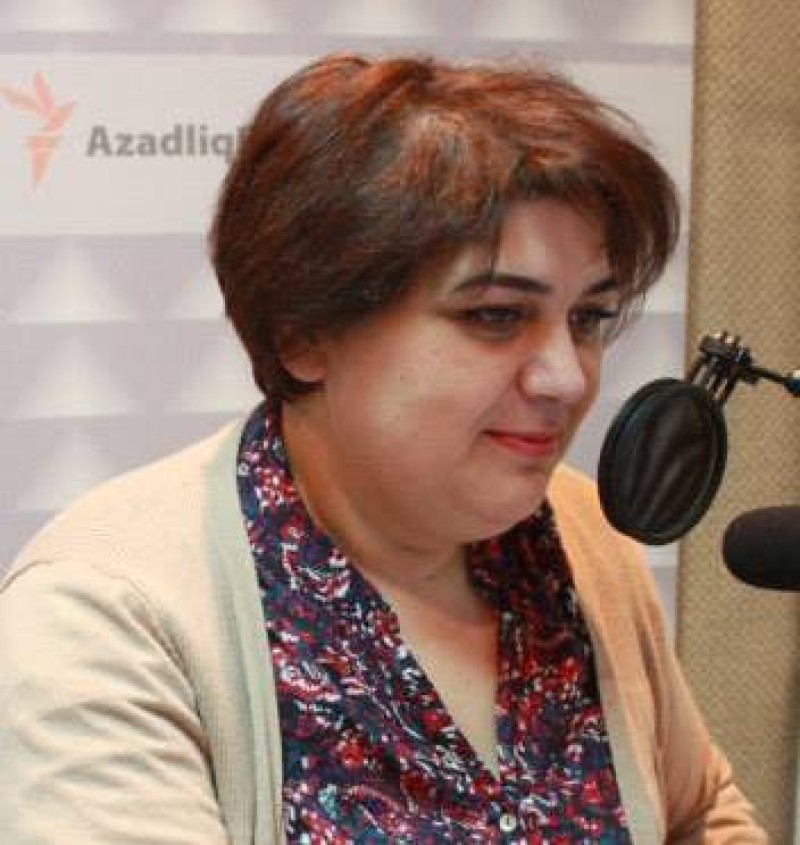Ismayilova’s Story
In the past week authorities have been interrogating an Azerbaijani journalist who appears to have become a go-to target for press intimidation: OCCRP partner and Radio Free Europe/Radio Liberty (RFE/RL) correspondent Khadija Ismayilova.
Ismayilova was first brought into the Azerbaijan's General Prosecutor's office on Feb. 18 for questioning related to an alleged leak of state secrets to Congressional aides who prosecutors claim were actually US intelligence agents.
According to Radio Free Europe, several pro-government media outlets claimed that she handed over files on Azerbaijani opposition politicians.
Jeyhun Osmanli, a parliamentarian from the ruling Yeni Azerbaijan party, gave prosecutors an allegedly incriminating and secretly made audio recording of Ismayilova speaking with "foreign nationals." He posted about his actions on Facebook, Eurasia Review reports, saying that a “betrayal of the Motherland will not be forgiven.”
Ismayilova has asserted that she does not have any state secrets, and only had a routine meeting with the aides. She says the allegations are an attempt by the government to intimidate and silence her. The U.S. Embassy in Baku cited the accusations made against Ismayilova as “absurd.”
Imayilova has not been charged with any crimes. However, according to the Committee to Protect Journalists, if convicted of publishing state secrets, she could face up to seven years in jail. Ismayilova has been banned from leaving Baku, the capital of Azerbaijan, without informing the authorities.
This is not the first time the award-winning investigative journalist has been targeted by those threatened by her reporting. In 2012, an explicit video of Ismayilova was put online as part of a smear campaign that attempted to use illegally obtained, intimate video footage to blackmail her into silence.
At the time, Ismayilova was investigating President Ilham Aliyev and his family’s links to a lucrative construction project. She received anonymous threats and warnings before the video was released. According to the Institute for War and Peace Reporting, one letter said, “Behave, whore, or you will be shamed.”
Media “Freedom” in Azerbaijan
Governed by a leader Reporters without Borders has called an authoritarian "predator of press freedom,” Azerbaijan holds a dismal record for freedom of speech and information. The NGO ranked Azerbaijan 160th in its 2014 World Press Freedom Index, making it one of the 20 worst countries for free journalism.
The Law on Mass Media in Azerbaijan guarantees freedom of speech but in reality writers, journalists, and bloggers often face threats, defamation lawsuits, and imprisonment for their work. Social media networks are painstakingly monitored (and sometimes blocked), and foreign news agencies struggle to broadcast their work.
Opposition voices are not tolerated.
For example, Ganimat Zahid, the editor of Azerbaijan’s main opposition daily Azadlig, has served several years in prison and has been regularly threatened for his work. According to Reporters without Borders, two of the newspaper’s reporters were abducted within one week in 2011, and were ordered to stop criticizing the government.
Avaz Zeynalli, the editor of another opposition newspaper, Khural, was jailed and had his newspaper shut down. Map of Azerbaijan
Map of Azerbaijan
Ismayilova is not the only journalist from RFE/RL in Azerbaijan facing pressure for her work. According to the news and broadcast organization, investigative reporter and Radio Azadliq journalist Yafez Hasanov received death threats and is facing espionage charges for working as a "foreign agent."
A Global Response
Advocates, politicians, and journalists are expressing outrage over the accusations of espionage and treason being directed at journalists in Azerbaijan.
U.S. Senator Benjamin Cardin, the Chairman of the Commission on Security and Cooperation in Europe (U.S. Helsinki Commission), expressed concern for the safety of Ismayilova, saying that she has been the “target of consistent and sordid attacks by the government because of her investigative journalism.
He added that espionage charges against her “are clearly fabricated and punitive in nature, ” and called for the government of Azerbaijan, as a participating state of the Organization for Security and Cooperation in Europe, to uphold its commitment to media freedom— and to stop harassing journalists.
Kevin Klose, RFE/RL president, compared the espionage accusations to the tactics used by the Soviet Union against critical press. “These latest accusations are absurd -- and dangerous,” he said. “I believe they are politically motivated and fabricated to persecute our colleagues.”
Drew Sullivan, editor of OCCRP, concurred, saying, “I thought trumped up charges and kangaroo courts went out of style with Stalin.”
Ismayilova has come forward as well. She has applauded human rights activists for “doing everything right” and thanked the international community for their offers to help.
She also asked democratic countries, diplomats, and international organizations to stand up for the freedom of speech and privacy “as loudly as possible”— without resorting to behind-the-scenes, secret negotiations that would allow the regime to benefit from “releasing one prisoner, getting praised, arresting two."
Ismayilova, who is currently working on three investigations, said that if she is not able to finish them, her editors and colleagues will publish them.
As she told the OCCRP, “I am ready for any outcome. Arrest is not something that can stop me.”






